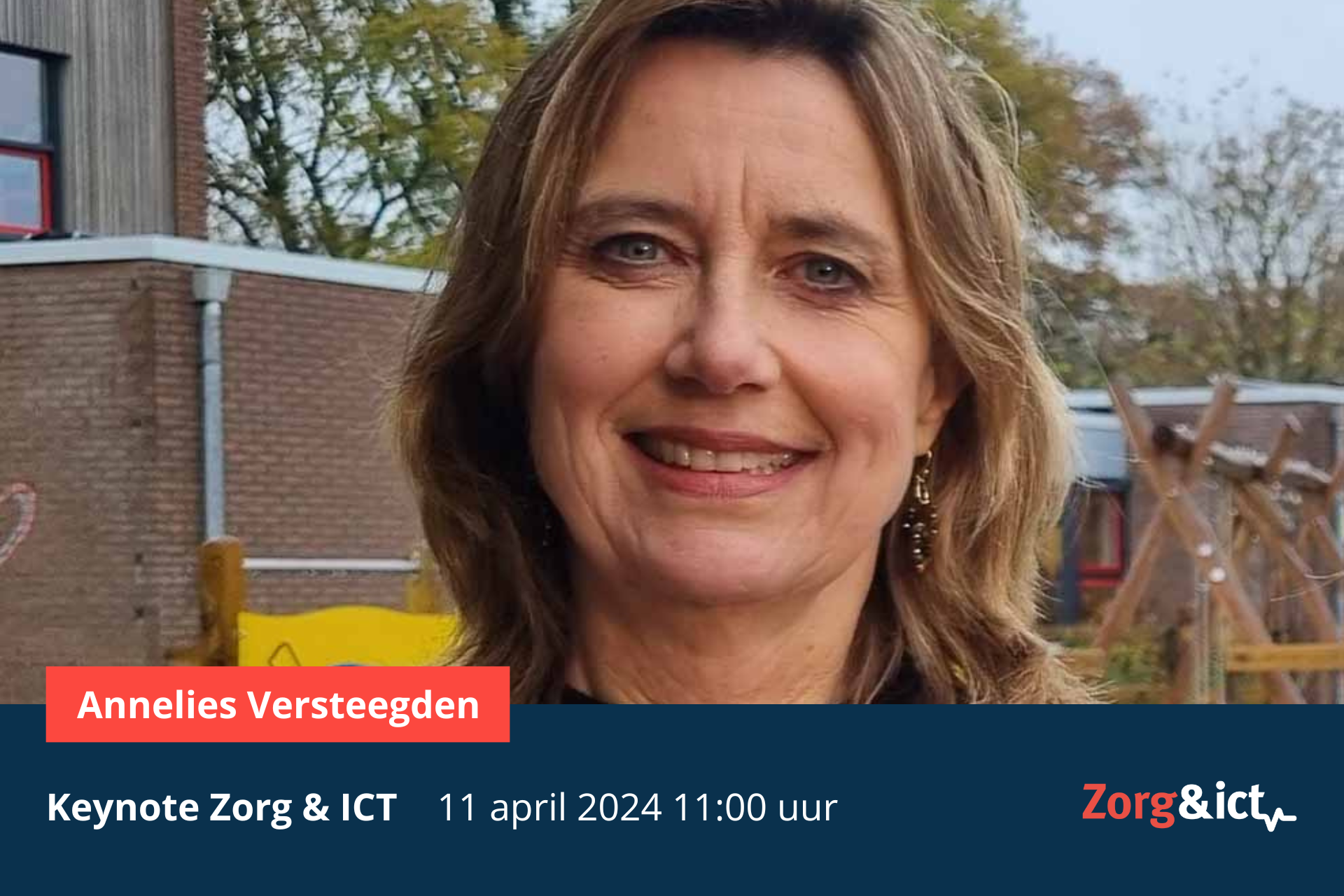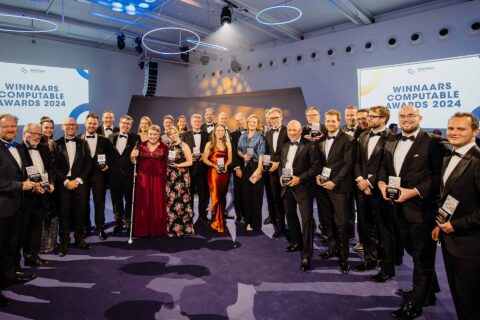Royal Visio wants to 'make participation possible'. There are now 350,000 people with a visual impairment and this will only increase in the coming years due to the aging population. Without remote care it is impossible to help everyone.
Annelies Versteegden is a member of the Board of Directors of Royal Visio. This organization focuses on people with visual impairments. "Making participation possible for all people with a visual impairment. That is our mission at Visio."
Versteegden: "Of those 350,000 people, we cannot help everyone. The sustainability of health care is under pressure. This forces us to design our care differently. We see many opportunities in preventing, replacing and shifting care by focusing on prevention and appropriate care. To this end, we deploy the so-called stepped care model, also called stepped care. Self-help and light care where we can, heavier care if we have to."
Tiered services
"The first step is our Visio Knowledge Portal. Here you can find instructions and tips on using computers, smartphones and other ICT aids, as well as information on work and study, mobility, personal care and leisure. For example, we also provide lighting advice. What adjustments can you make to the light in your home so that you can be more self-reliant? Our platform is visited by some ten thousand people every month. Those we help at an early stage to be self-reliant."
The next step is remote care. "We give clients hybrid care, partly online, partly on location. A concrete example is vision training for people with Hemianopsia: a brain injury has caused part of the visual field to be lost. We offer at-home classes where you train yourself how to use your remaining vision effectively. We combine that with appointments at a Visio location where you can practice live."
"A third step is for people who need more care or guidance, they attend rehabilitation or day care at one of our locations. The last step is for specialized care, intensive rehabilitation or for people who live with us and need 24-hour care."
"This tiered model allows us to prevent, replace and shift care. This leaves room to provide specialized care to people with heavier care needs. The big challenge here is and remains getting on their path earlier. People still come to us too often when they have already got stuck. And in many cases that could have been prevented."
More remote care
The current offerings for remote care are not yet sufficient, Versteegden said. "We really still need to take steps in this regard. We are already doing nice pilots, but there is still a lot of work to be done. It does make me very happy. One example is bicycle training. We teach people how to use the sight they still have as efficiently as possible. We do that just like the vision training in hybrid form. If people remain mobile and self-reliant in this way, it prevents care. A lot more can be done remotely than we sometimes think. I was really amazed that in the corona days even Braille training was done remotely. And that went fine. Much more can be done and it is really very much needed"
Cross-domain funding
It would help if there was less pigeonholing, Versteegden said. "Take home care, hospital care, care for the disabled or care for the elderly. A lot of people who fall within this care also fall into our target group. We see it as our mission to make our knowledge and expertise available to these people as well.
"This requires investments. For example, investments to expand the knowledge portal, create digital care programs and continue to develop knowledge. It is still difficult to get prevention and lighter care paid for. We are discussing this, we need other parties very much. The benefits far outweigh the costs. This requires cross-domain thinking and cross-domain funding. Only then can we make great strides and help many more people with fewer resources.
Inclusive society
Digitalization and remote care are important, but that alone will not get us there, according to Versteegden. "We need to work on an inclusive society. That means accessible buildings and public spaces. But also facilities on the street and in public transport. If those facilities are accessible, it increases the self-reliance of whole people."
"I expect that at Zorg & ict there will be many healthcare providers in the room, but also fellow administrators and IT vendors. I want to motivate them to look in their own environment. How accessible are their healthcare facilities? And do they design inclusively?"
"It is much easier to include accessibility for a wide range of users in the design from the very beginning. We as Visio like to help with that. We like to be at the front of the chain with our knowledge. That increases the self-reliance of many people, who we can therefore keep out of care."
Remote care is one of the topics during Zorg & ict 2024. The largest health tech event in the Netherlands will be held from April 9 to 11, 2024 at Jaarbeurs in Utrecht. Annelies Versteegden will perform there on April 11 as keynote speaker on the Tech Mainstage. Register for free here.
For many more articles on healthcare, visit dutchhealthhub.nl, the knowledge platform of Jaarbeurs












